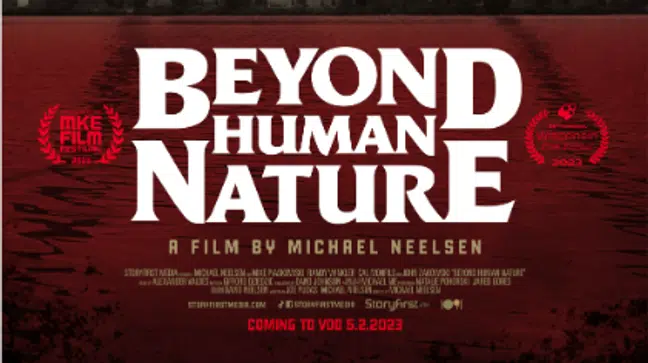GREEN BAY, WI (WTAQ-WLULK) – The much-talked-about 1992 murder of Tom Monfils is getting another look — not from police, but by a Wisconsin documentary filmmaker.
The death of Monfils, 35, led to six men being convicted, but for some in the community, the case remains a mystery.
The documentary is from Wisconsin-based production company StoryFirst Media and is set to debut April 14 at the Tarlton Theatre in downtown Green Bay as part of the Green Bay Film Festival.
It was Nov. 22, 1992, when the body of paper mill worker Tom Monfils would be found, weighted down at the bottom of a pulp vat at what was the James River Paper Mill on Green Bay’s east side.
“If it went down the way that the state says, and six of Tom’s co-workers beat him and killed him and put him into a pulp vat, that feels bizarre. And how could people do that beyond the realm of human nature?” said Michael Neelsen, who headed up the project.
Neelsen set out to tell the story of Monfils and the six men convicted in his murder — better known as the Monfils Six. But Neelsen admits the story of a murder that happened 30 years ago is not that simple.
“Well, the real interest from my standpoint is, why are we still talking about it 30 years later? Why this case and not the myriad of other cases that happened here and elsewhere throughout Wisconsin and the rest of the country?”
Neelsen uses actual news footage from the time, newspaper clippings, interviews and recreations to the retell the story. He also presents an alternate theory that has gained traction over the years, suggesting Monfils dictated his own fate.
“If he did what the recent advocates are making a case of — that he committed suicide — that feels like how would someone do that? They would wrap the rope around their own neck and throw themselves into the vat, that seems outside human nature,” continued Neelsen.
The title of Neelsen’s project is “Beyond Human Nature.”
The documentary got underway nine years ago for Neelsen. In his spare time, he began writing, producing, directing and editing what has become a 109-minute film. It came together from the more than 50 hours of interviews with key players in the case including the lead detective, Randy Winkler, and the prosecutor, John Zakowski, who is now a judge in the county where Monfils was tried.
Zakowski maintains the jury got the verdict right: “Circumstantial evidence is many times more powerful than direct evidence.”
And Neelsen talked with Steve Kaplan, a post-trial attorney for Keith Kutska. Kutska was seen as the ringleader of the six men convicted and is the only one who remains behind bars.
“It struck me as odd that you would just say, ‘Well, I don’t want to look at the possibility that this may not have been a murder at all,’” said Kaplan in the film, as he supports the theory that Monfils could have taken his own life.
Neelsen said getting all the different figures in the case to talk was key to retelling the story.
“I didn’t want to make a film if I couldn’t get them, so I spent a good amount of time upfront on the phone, earning their trust.”
In 1995, circumstantial evidence sent the six convicted off to prison. While suicide was never brought up at the trial itself, it was raised later in appeals and got notice when Tom Monfils’ own brother Cal publicly supported the idea.
“He was my big brother. Knowing what I know, it’s pretty obvious to see that it really doesn’t add up,” said Cal Monfils in the film.
Neelsen hopes those who watch the film do so with an open mind. He insists he is not trying to lead people to a conclusion, he’s just hoping people on both sides are able to see another point of view.
“I really hope Green Bay takes away an honest attempt at exploring the human stories of the people involved with this — why they did what they did, what drove them to behave the way they did, make the decisions they did, and why has it held onto this community for 30 years,” said Neelsen.
The documentary film will be made available on video on demand streaming services and for rent or purchase on digital download.








